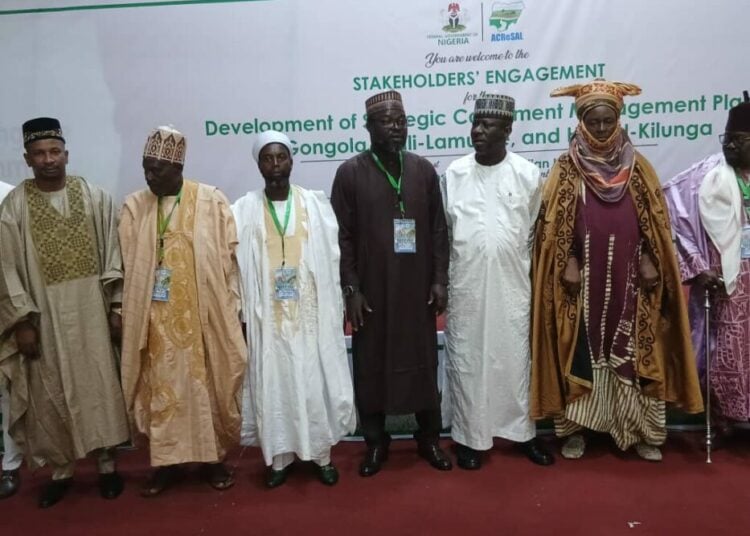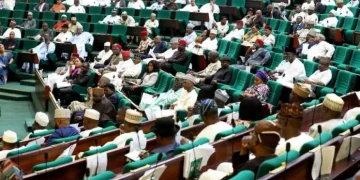Six states from the North-East together with Plateau in the North-Central have launched a joint effort to protect Gongola, Gali-Lamurde, and Hawal-Kilunga River Basins, as climate change and unsustainable land use pose increasing threats to the region’s ecosystems and livelihoods.
Gombe State’s Commissioner for Water, Environment, and Forest Resources, Alhaji Mohammed Saidu Fawu disclosed this at the opening ceremony of the stakeholders’ engagement for the development of strategic catchment management plans for the basins in Gombe.
Fawu said the initiative was critical in the face of climate variability, population growth, and unsustainable land use practices that threaten the region’s ecosystems and livelihoods.
“These basins are not merely geographical entities, they are lifelines that sustain ecosystems, communities, and economies across our region.
“The urgency of this engagement, I believe, stems from the growing pressures of climate variability, population growth, and land-use changes that threaten the integrity of our water resources,” the Commissioner said.
The engagement, supported by the Agro-Climatic Resilience in Semi-Arid Landscapes (ACReSAL) project and the World Bank, brought together stakeholders from Gombe, Bauchi, Adamawa, Plateau, Taraba, Yobe, and Borno States.
The plans, when finalised, are expected to serve as a cornerstone for basin-wide conservation, wetland restoration, and climate finance opportunities.
Fawu praised the leadership of the Chairman of the Northern Governors’ Forum and Governor of Gombe State, Muhammadu Inuwa Yahaya, describing him as a “Green Governor” whose administration has spearheaded environmental initiatives such as the Gombe Goes Green (3G) project.
He explained that the initiative has seen over 5 million trees planted in five years, contributing to the Federal Government’s target of restoring four million hectares of degraded land by 2030.
The commissioner noted that ACReSAL interventions, including gully stabilisation, afforestation, and bioremediation were already transforming degraded landscapes and strengthening resilience in beneficiary states.
“As we are all aware, the northern region faces severe environmental degradation, driven by both climatic variability and anthropogenic pressures such as deforestation, overgrazing, bush burning, and unsustainable agricultural practices.
“Yet, amidst these challenges lies a wealth of water resources, rivers, lakes, and dams that, if properly harnessed, can revolutionise agricultural productivity and improve livelihoods year-round,” he added.
Fawu reaffirmed Gombe State’s commitment to championing sustainable landscape management.
“We are confident that the outcomes of this engagement will pave the way for a resilient and prosperous future for our catchments and communities,” he added.











